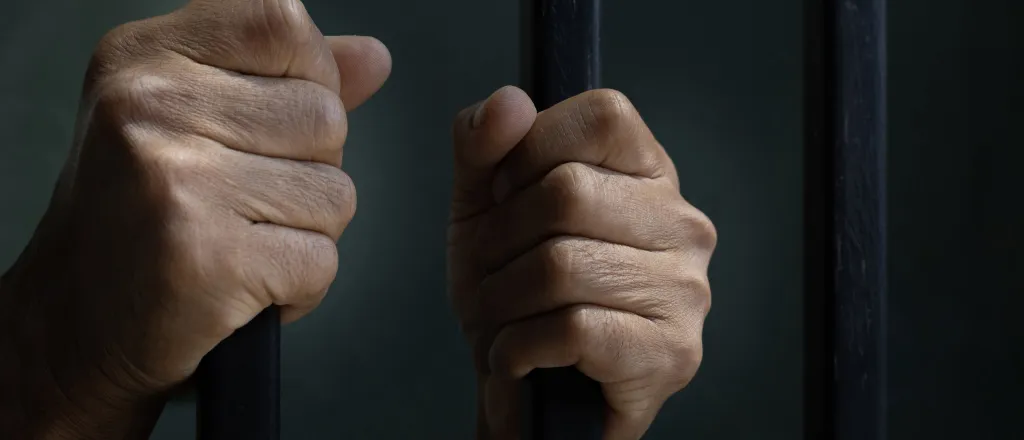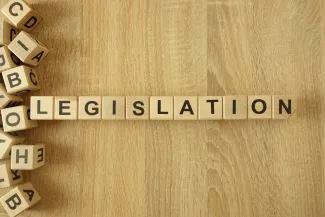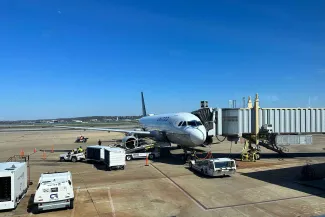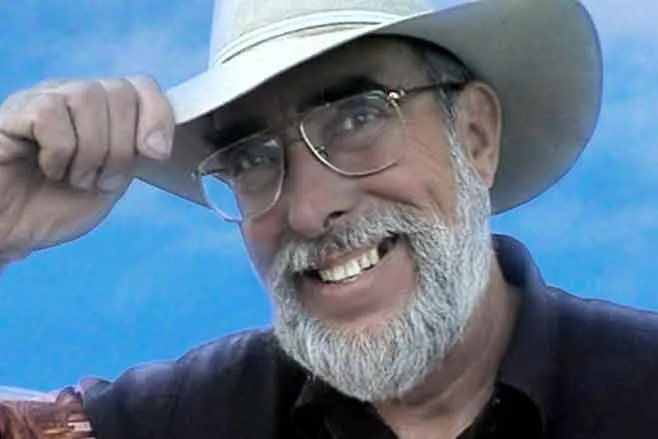
Colorado bill would establish right to family visitation for incarcerated people
© Akarawut Lohacharoenvanich - iStock-1436012592
Stephanie McGuffie’s son Christopher has been in Colorado Department of Corrections custody for 16 years, since he was 18 years old.
Visits with family were especially important when Christopher was initially incarcerated to “keep his mental state and have his morale up,” Stephanie said. Being fresh out of high school, her son wasn’t sure he could make it in prison, and contemplated suicide.
“We were on the build up, on the back end, to say, ‘You’re loved. You matter. You’re still our son. You have a family that’s out here waiting,’” Stephanie said. “In every facility he’s been to, we have been there. If they have allowed us to see him, we saw him. If they didn’t, we wrote letters.”

A bill under consideration at the Colorado Legislature would give incarcerated people the right to see their families and community, ending the current policy under which visitation can be withheld as a form of punishment, and formalizing a process that can vary widely from facility to facility.
After more than a decade visiting her son in prison, Stephanie said she has figured out most of what’s allowed and not allowed during visitation, after being turned away for a variety of reasons across the seven facilities he has been confined in. He’s currently in the Bent County Correctional Facility.
“If I didn’t have a change of clothing or access to go get a change of clothing, the visit would not have occurred at all,” Stephanie said. “I’ve learned now that I have to tailor my outfits to each facility… I try to wear the same outfit because it’s safe every visit, and I’ve learned that from facility to facility could be deemed differently.”
Christopher answered questions from Colorado Newsline in a message to his mother. He said visitation with family helps incarcerated people have “a tangible, meaningful connection with those we love.”
“Hearing someone tell you they love you doesn’t compare to the warmth of a hug or holding their hand,” Christopher said. “It psychologically frees you from the torture these walls can be, even if for only a few hours.”
Current Colorado Department of Corrections policy says “inmate social visiting” is a privilege that can be “approved, denied, suspended, or revoked” by the head of the facility. House Bill 25-1013 would still allow the department to “adopt rules to govern the administration of social visitation,” but it cannot restrict visitation beyond “what is necessary for routine facility operations” or safety purposes.

Colorado Capitol Building Denver © iStock - kuosumo
Visitation being taken away makes those who are incarcerated “almost feel invisible,” Christopher said. He said their mental health “takes a downward spiral because we are now left alone to navigate this journey by ourselves.” He’s had friends contemplate suicide and start medication due to not having visitation privileges.
“If visitation became a right, it would mean that visitors wouldn’t have to endure the trauma of driving hours and being rejected for things outside of their control,” Christopher said. “It would mean that (CDOC) can no longer use our family and friends as a carrot to dangle in front of an already fragile spirit. It would mean freedom for us.”
Sponsored by Representative Regina English, a Colorado Springs Democrat, House Assistant Majority Leader Jennifer Bacon, Senate President James Coleman, and Senator Julie Gonzales — all Denver Democrats — the bill would make in-person visits, phone calls and video visits a right that cannot be taken away as punishment for an incarcerated person’s actions.
“By making it a right, that means it can’t be used as a disciplinary tool,” Bacon said, “But they would still have every opportunity, and duty, quite frankly, to ensure safety.”
The bill says all visitors and incarcerated people must still comply with department rules related to visitation. People in CDOC custody could file a grievance with the department if they are prevented from visitation under the requirements of the bill.
Bacon said establishing family visitation as a right came up in conversations with the organization End Slavery Colorado. A 2018 amendment to the Colorado Constitution removed a provision that permitted slavery as punishment for a crime, but Bacon said visitation can be taken away as punishment for someone who does not show up to work while in prison.
CDOC spokesperson Alondra Gonzalez-Garcia said the department “supports visitation and recognizes its importance for incarcerated individuals and their families,” but emphasized the “need for established practices and allowable adaptations that meet the safety needs of staff, inmates, and visitors.”
Gonzalez-Garcia said there are times when escorting someone for an in-person visit is unsafe “due to the behavior of the incarcerated individual,” and the current version of the bill would not permit CDOC to “implement necessary restrictions that ensure safety.”
“CDOC believes it is important to retain the ability to restrict visitation temporarily in these specific cases to ensure safety for all involved,” Gonzalez-Garcia said in an email. “We provide visitation opportunities for individuals even when they are housed in restricted environments.”
Last-minute cancellations
Evonne Carroll lives in Las Vegas, and her husband has been in CDOC custody for just over two years. She said he went to prison one month before their daughter was born. Carroll travels with their daughter to Colorado every couple months to visit him.
Before her last trip to the Buena Vista Correctional Complex in December, Carroll said CDOC called her to cancel her visit with her husband less than 24 hours before the visit was scheduled.

© Chris Sorensen
“They called me literally on the way to the airport,” Carroll said. “So as you can imagine, I was quite disappointed. I’m traveling with my two-year-old — that’s already hard enough — and I lost out on $1,700 for that trip.”
She still went on the trip so she wouldn’t “fully” lose the money for her plane, rental car and hotel room, and despite multiple tries, she was not able to see him at all that weekend. Carroll said CDOC told her the whole complex was under a lockdown and all visits that weekend were canceled. Her husband called her the day their first visit was scheduled and said he and others in his vicinity were placed in handcuffs and moved to restricted housing because a guard found a piece of metal near someone’s door.
“They said that they were canceling all visits that weekend. They didn’t say anything about, everyone in his particular area is under investigation for a weapon,” Carroll said. “It was just the whole manner and how they did everything. It was just kind of strange, and I just feel like how can you do family like that?”
The experience made Carroll question whether she would try to visit him again while he’s in custody. Her husband has about a year left in prison, but since she is currently raising their daughter alone, she can’t risk losing another $1,700.
“I don’t necessarily feel welcome. It kind of discouraged me from setting any more visits,” she said. “They didn’t care either, and they expressed to both of us that they didn’t care, that’s not their problem.”
A ‘powerful public safety tool’
Jennifer Dillon, spokesperson for the Colorado Criminal Justice Reform Coalition, said it’s clear that when incarcerated people maintain relationships with their loved ones, they have a better chance at finding success and stability once they are released.
“If people understood what a powerful public safety tool visitation is, they would want to ensure it was only restricted when absolutely necessary,” Dillon said in a statement. “It is also essential for protecting children and families from the ripple effects of incarceration, helping to maintain stability and support beyond prison walls.”

© Daniel Tamas Mehes - iStock-1992275198
Stephanie said making visitation a right would remove the opportunity for people working within the penal system to apply their own prejudice or judgement to one’s ability to access visitation.
“My son is in there under the consequences of his actions, but that doesn’t excuse him from being loved by his family,” she added.
Because Carroll’s husband went to prison a month before their daughter was born, Carroll said losing out on visitation means less time he gets to bond with his daughter.
“When he gets to hold his daughter, it just lets him know he’s closer to the goal of being able to get out and be with his family, because someone actually cares about him,” Carroll said.
Knowing they have the right to visitation would make Carroll feel comfortable booking a trip without the fear of another last-minute cancellation.
“I feel like it is the correct solution, because they don’t realize that when you give them the right to see their family, and hug their family, and have physical contact with their family, it gives them a better attitude about it,” Carroll said. “It makes them more hopeful. It just makes the whole environment a lot more positive.”
Colorado Newsline is part of States Newsroom, a nonprofit news network supported by grants and a coalition of donors as a 501c(3) public charity. Colorado Newsline maintains editorial independence. Contact Editor Quentin Young for questions: info@coloradonewsline.com.
















